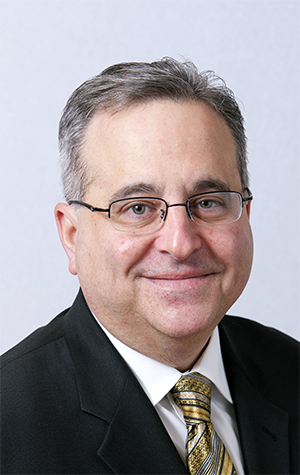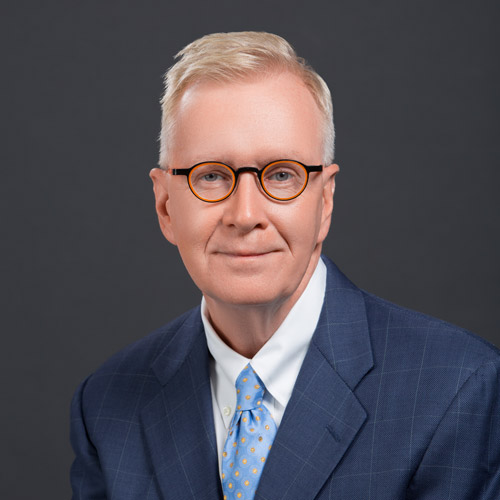City Year Cofounder to Receive Honorary Degree
Michael Brown will speak at SSW convocation

Michael Brown, the chief executive officer and cofounder of City Year, the Boston-based nonprofit organization that sends 2,700 young people annually to serve in many of the nation’s highest need urban schools, will be given an Honorary Doctor of Humane Letters at BU’s 141st Commencement Sunday, May 18. He will also deliver the convocation address at the School of Social Work on Friday afternoon.
Brown first became fascinated by the idea of national service while taking a year off from Harvard to work as a legislative aide for Leon Panetta, then a Democratic congressman from California, who had introduced legislation to study the feasibility of launching a voluntary national service program. The bill didn’t pass, but Brown was hooked.
“I became passion-struck by national service,” recalls Brown. “I became convinced that national service is the missing link in our democracy, a pathway to the American Dream and a more just society.”
Public service came naturally to Brown. His parents, he says, instilled in him “a tremendous set of civil and moral values, and a commitment to social justice.” He remembers his father posing a question from a bible story to him as a boy, asking, “If two people are walking in the desert, and one person only has enough water for himself and the other person has none, is there an obligation for him to share it?” Such conversations were frequent in the Brown household.
After graduating from Harvard, he pursued his passion for service by working as a public information officer for New York City Mayor Ed Koch’s City Volunteer Corps. When he returned to Harvard for law school, he and his roommate, Alan Khazei, hit on the idea for City Year.
The two, Brown says, “were deeply inspired by the idea that young people should be inspired—and given the opportunity—to dedicate a year or more of service to their community and country.”
They launched City Year in 1988, hoping to create an “action-tank for national service, a combination of a program and think tank.” That first year, 50 young people between 17 and 24 signed up for one to two years of service, volunteering at senior centers, doing maintenance work in city parks and other civic projects, and volunteering in urban schools. Then, as now, students received a small stipend to cover living expenses.
Brown says that initially at least, it wasn’t easy to find money for the program. “Almost nobody said no, but nobody said yes,” he says. “They would all ask, ‘Who is already supporting you?’” Students were applying “in droves,” and he and Khazei hit on the idea of photocopying the applications and bringing them to fundraising meetings. “The idealism of the young people would jump off the page,” says Brown, convinced that was the reason they got the initial grants.
The program expanded from Boston to Providence, and gradually to other parts of the country, serving along the way as inspiration for President Bill Clinton’s AmeriCorps, which created a network of federally funded nonprofits. While campaigning for president in 1991, Clinton visited City Year. “He was deeply inspired by the corps members he met and excited by City Year’s service model,” Brown says. Since its creation in 1994, more than 830,000 Americans have served as AmeriCorps volunteers, 18,000 of them as City Year AmeriCorps members.
By 2006, City Year was nationwide, and officials began examining whether it would be better to focus on a single field of service to, as Brown says, “amplify its impact to help solve a pressing national problem.” After looking at studies showing a million students dropping out of high school every year, City Year “decided to fully focus on addressing the nation’s dropout crisis.” In 2007, the nonprofit initiated its school-based service model, Whole School, Whole Child, aimed at at-risk children in grades three through nine. The program is based on research from Johns Hopkins University that found that students who are at risk of dropping out of high school can be identified as early as elementary school, and that the warning indicators are poor attendance, disruptive behavior, and course failure in math and English.
Today, City Year volunteers serve as full-time mentors, tutors, and role models. The red-jacketed, khaki-clad young people greet students as they arrive at school and provide one-on-one support to help them with the challenges they face both in—and outside—the classroom, with special focus on improving their attendance, behavior, and course work in math and English. Corps members run after-school programs as well.
What began with 50 volunteers has expanded to 2,700 in 25 US cities as well as in London and Johannesburg. City Year has an operating budget of $100 million, and is so popular that it has four applicants for every available slot.
Brown has bold plans for City Year over the coming decade. The organization recently launched a 10-year Long Term Impact strategy designed, he says, “to challenge the high school graduation status quo in America, dramatically increase the urban graduation pipeline, and transform the future for thousands of students nationwide.” It plans to expand from 25 to 38 cities, increase the number of annual corps volunteers to 11,000, and extend its reach from serving 150,000 students to nearly a million annually.
While he’s inspired by the stories of transformation he hears every day, Brown says that one in particular touched him. A corps member told him about a young female student who was consistently disruptive in class. “No one had been able to get through to her, and even when the student pushed her away, the corps member didn’t give up, saying, ‘I’m still here for you.’ Finally, the student revealed to the corps member that her mother was being deported.” That allowed the school to provide more support services for the girl, and she “eventually blossomed,” Brown says.
What does Brown plan to say to the graduates at tomorrow’s SSW convocation? His message will be simple, he says: “You are needed, more than ever.” Further, they have “untold powers to transform the world, at every level.” He will also quote from BU’s most famous alum, Martin Luther King, Jr. (GRS’55, Hon.’59), who said that the arc of history is long, but it bends towards justice. Brown will urge the students to “bend that arc faster—bend it as fast and as far as you can.”
More information about Commencement can be found at the Commencement website.

Comments & Discussion
Boston University moderates comments to facilitate an informed, substantive, civil conversation. Abusive, profane, self-promotional, misleading, incoherent or off-topic comments will be rejected. Moderators are staffed during regular business hours (EST) and can only accept comments written in English. Statistics or facts must include a citation or a link to the citation.